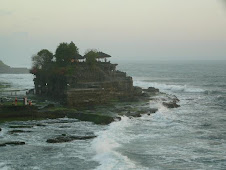NY festival showcases films on Muslim world
Saturday, Apr 26, 2008 By Michelle Nichols
NEW YORK (Reuters) - Seven years after New York's Tribeca neighbourhood was shaken by the attacks on the city's World Trade Centre, the area has become a bazaar for movies about and from the Muslim world.
The Tribeca Film Festival, started after the September 11 attacks in 2001 to try to rejuvenate lower Manhattan, has become the key destination in North America for films from Muslim countries or about the Islamic faith seeking distribution deals, says artistic director Peter Scarlet.
This year, 19 films related to Islam, making up 10 percent of the program, will be shown at the seventh annual festival.
Scarlet, who has been working with the festival since 2003, said he was shocked when in his second year he was asked by a journalist if Tribeca would continue to show films "from the people who brought us 9/11."
"Even in as wealthy and as big a country as the United States people know very little about the rest of the world," he said. "Films are the last chance we have to understand what we as human beings have in common.
"The real function of a film festival is to open our windows, open our eyes and open our minds," he said. "Films might be our only chance to understand people who may look different, whether they live on the other end of the world or maybe they moved in across the street or across the hall."
The films at this year's festival, which began on Wednesday, include "Football Under Cover," the story of a German women's soccer team that heads to Iran after hearing their counterparts there had never been allowed to play a game, and "Headwind," which shows efforts by Iranians to stymie government censorship of media and information.
Director Faramarz K-Rahber, from Australia, has documented the love story between an Australian puppeteer and a young Muslim woman from a highly traditional Pakistani family in the film "Donkey in Lahore."
"This is done from a love point of view," said the Iranian-born director. "This is not about terrorism, this is not about the extremists, it is purely about love and how a religion can bring them together."
Jane Rosenthal, who founded the festival with actor Robert De Niro and her husband Craig Hatkoff, said the stronger showings of films from Islamic countries could be because advances in technology had made filmmaking more accessible.
"We had one picture last year done by a soldier in Iraq that he made on his cell phone and the power of it when it was blown up was really quite unnerving," she said.
"As technology becomes more accessible, people are making movies and telling their stories and getting cameras into places that in a million years you wouldn't expect it."
(Editing by Mark Egan and John O'Callaghan)
 download latest Opera for PC or Operamini for handphone
download latest Opera for PC or Operamini for handphone 


